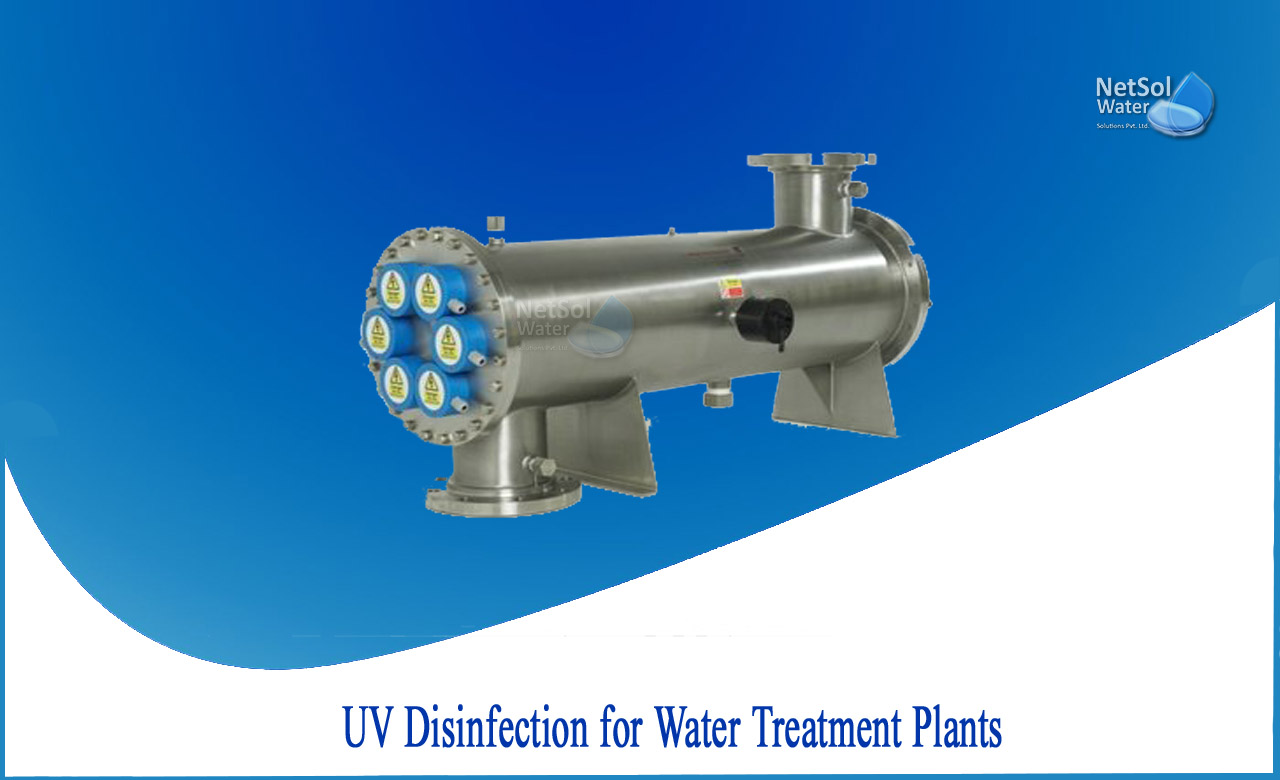What is UV disinfection in wastewater treatment?
UV therapy is a quick physical process that causes a molecular rearrangement of the microorganism's genetic material, known as DNA, rendering it dormant and unable to infect humans.
UV disinfection systems are used for a number of purposes, ranging from purifying drinking water in individual homes to sterilising entire township water supplies. UV water treatment is also considered as a safer, more environmentally friendly, and more cost-effective means of disinfecting water for industrial applications.
How does a UV disinfection system work?
UV germicidal irradiation (UVGI) is a method of water disinfection that uses UV light with a wavelength of 253.7 nm to kill pathogens and microorganisms. It acts by destroying these organisms' nucleic acids, which damages their DNA and avoids them from performing critical cellular jobs or infecting others.
No bacteria, viruses, moulds, or their spores can survive when exposed to the correct amount of UV radiation. As a consequence, UV is widely regarded as the most effective method of water sterilisation.
Industrial Applications of UV Disinfection Systems
1. Food and beverage industry: UV disinfection devices can help achieve FDA(Food and Drug Administration)approved water quality in the food and beverage industry.
2. Bio-pharmaceutical:Chlorine, ozone, and pathogens must be removed from water used in pharmaceutical and healthcare products, as well as for CIP (Cleaning in Place). Most pharmaceutical companies use UV equipment to sterilise their water.
3. Cosmetics:Bacteria-free and pollutant-free water enhances the quality of cosmetics and extends their shelf life. In the cosmetics industry all around the world, UV sterilisation is the preferred method of sterilising.
4. UV Drinking Water Disinfection:A UV drinking water disinfection system is a simple and cost-effective approach to ensure that your home or office always has clean water.
5. Waste Water Disinfection and Reuse:By treating waste water at the tertiary stage, UV Disinfection can assist address the problems of water scarcity and rising fresh water costs. UV systems are designed specifically for wastewater disinfection, allowing it to be reused for flushing and gardening.
6. Swimming Pools: Chlorine has traditionally been used in swimming pools to keep the water clean. Chemical disinfection, on the other hand, is increasingly obvious to cause chemicals to react with a variety of other organic substances, resulting in the production of hundreds of new, potentially harmful compounds. UV, a chemical-free form of pool disinfection, is widely regarded as a safer and more cost-effective option.
Benefits of UV Disinfection systems-
1. Lower running cost: When compared to chlorination or ozonation, UV disinfection plants are far more cost-effective to operate, with a median payback period of 1.5 years when compared to a chlorination plant employing NaOCI.
2. Simple and failsafe operation: A UV disinfection system requires little or no user interaction to operate. The disinfection process is regularly monitored by the online monitoring system, which will notify the user if there is a decline in performance.
3. Compact: UV disinfects in seconds and does not require a contact tank or retention period, which saves important space, particularly in metropolitan areas.
4. Environmentally friendly:UV does not require any chemicals and produces no waste. In comparison, chlorine produces deadly carcinogens such as tri halo methane, which damages our environment and can put our health at risk.
5. Safe: A UV disinfection system eliminates the need for hazardous chemicals like chlorine gas or sodium hypochlorite, which can cause burns and respiratory difficulties.
6. Energy efficient: UV systems, for example, use very energy efficient UV radiation sources that require a fraction of the electricity used by competing technologies.
Maintenance of Netsol UV disinfection systems
In other cases, the water may not have been adequately pre-treated, resulting in higher-than-expected turbidity levels. In certain cases, a six-monthly check-up and cleaning may be necessary. In circumstances of high turbidity and hardness, cleaning frequency may need to be increased. Finally, the UV lamp has a limited lifespan and must be replaced once it has served its purpose. If the light fails prematurely, the monitoring circuit will give out a signal indicating that it needs to be replaced.
Netsol Water is Greater Noida-based leading water & wastewater treatment plant manufacturer. We are industry's most demanding company based on client review and work quality. We are known as best commercial RO plant manufacturers, industrial RO plant manufacturer, sewage treatment plant manufacturer, Water Softener Plant Manufacturers and effluent treatment plant manufacturers. Apart from this 24x7 customer support is our USP. Call on +91-9650608473, or write us at enquiry@netsolwater.com for any support, inquiry or product-purchase related query.



